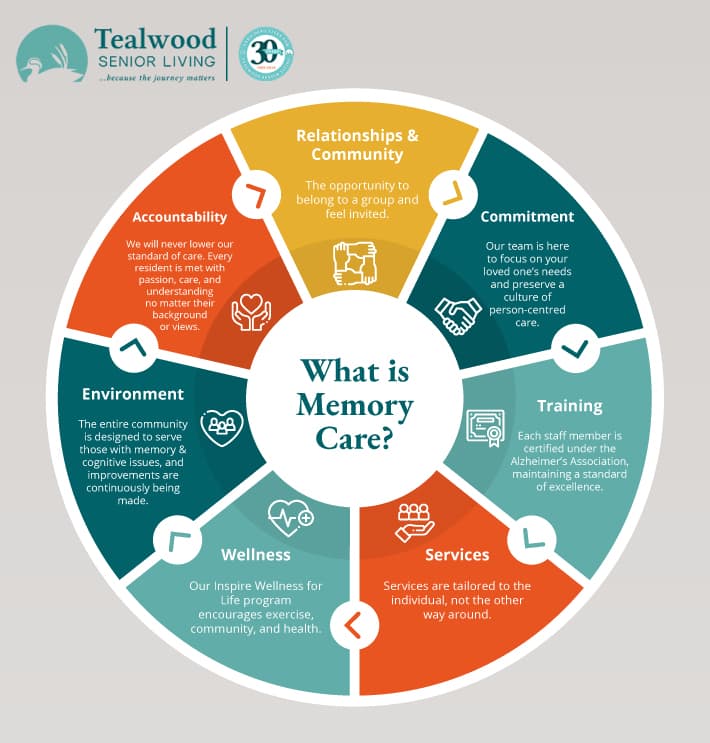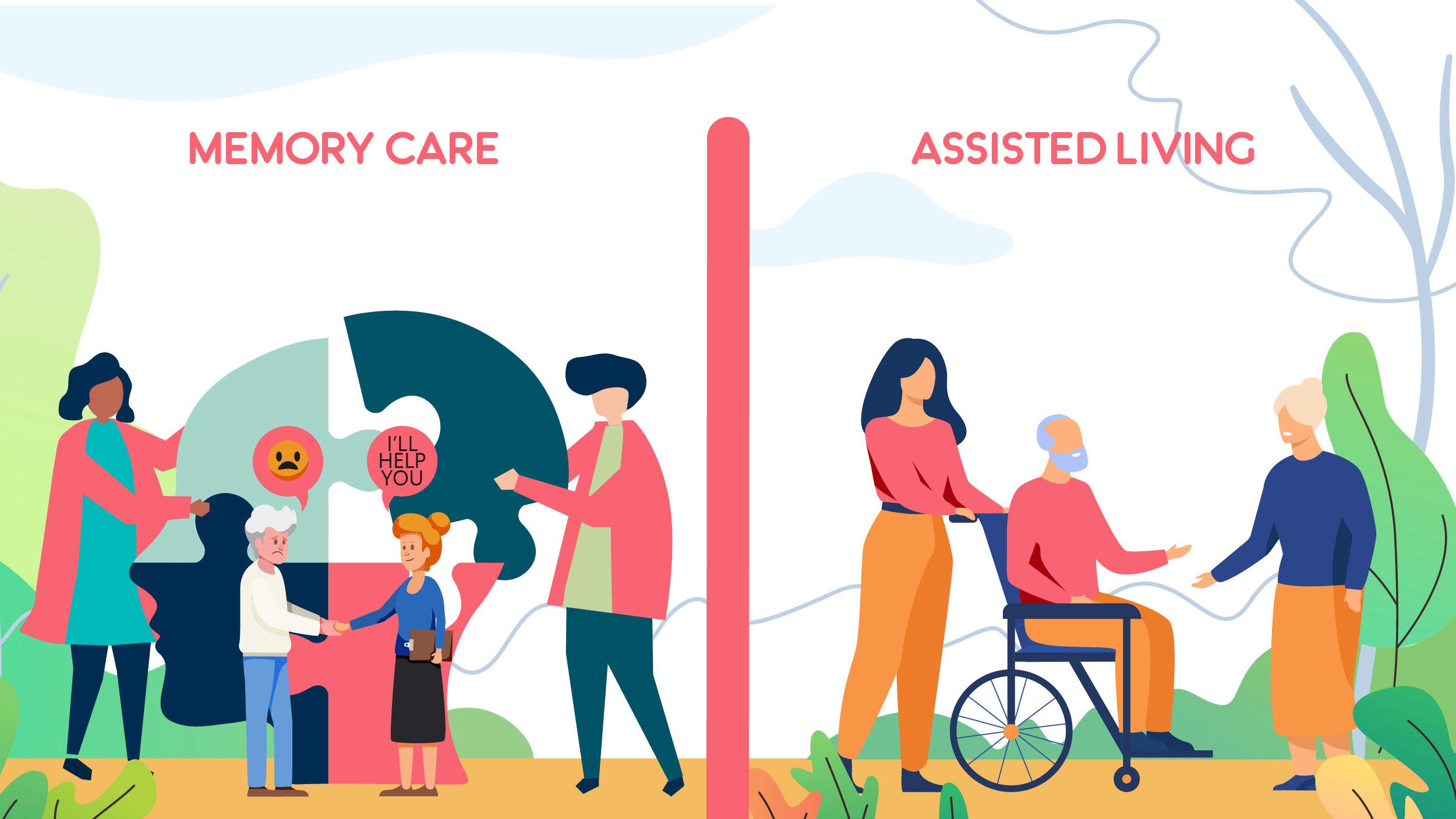Producing a Safe and Helpful Setting for Alzheimer's Care
The development of a helpful and secure environment for people with Alzheimer's is vital in boosting their top quality of life. This includes not just physical adaptations within the home, such as lessening dangers and including acquainted elements, however additionally the application of structured regimens and significant activities that satisfy their cognitive demands. Understanding the emotional and mental dimensions of care can dramatically impact their feeling of safety and link. Exploring these complex methods can reveal critical understandings right into reliable caregiving methods that might change the day-to-day experiences of both caregivers and patients.
Recognizing Alzheimer's Needs
Often, individuals with Alzheimer's condition exhibit a variety of requirements that need customized strategies to care. As the problem advances, cognitive decline shows up in various means, affecting memory, thinking, and even the capability to execute everyday activities. Caretakers have to identify these progressing demands to provide appropriate assistance and ensure a greater high quality of life for those affected.
One important element of comprehending Alzheimer's needs is recognizing the significance of regular and experience. Individuals frequently discover comfort in recognized patterns, which can minimize anxiety and complication. Caregivers should aim to develop organized everyday routines that include purposeful activities aligned with the person's capabilities and passions.
Furthermore, reliable interaction is extremely important. Individuals with Alzheimer's might battle to express themselves or comprehend intricate language. Caretakers should use basic, clear language, use non-verbal hints, and technique active listening to foster understanding and link.
Last but not least, social and psychological needs can not be neglected. Providing chances for social interaction and keeping partnerships can substantially boost psychological health. Caregivers must motivate interaction in community tasks or household events, promoting a feeling of belonging and purpose. Comprehending these varied demands is necessary for creating an encouraging care setting.
Creating a Safe Home
Creating a safe home for individuals with Alzheimer's illness is vital to lessening dangers and advertising independence. Make certain that pathways are well-lit and clear, as proper illumination lowers disorientation and boosts wheelchair.
Including adaptive features is additionally crucial. Install grab bars in washrooms and near stairs, and consider using non-slip floor coverings in wet locations. Additionally, making use of different shades for floors and wall surfaces can aid in identifying areas, assisting to alleviate complication.
Knowledge is important for individuals with Alzheimer's. Customizing the atmosphere with acquainted things and photographs can strengthen a sense of belonging and safety and security - Alzheimers Care Charlotte. It is also advantageous to have actually an assigned location for day-to-day tasks, such as reading or crafting, which can provide framework to their day
Last but not least, applying a protected exterior area enables risk-free exploration while getting in touch with nature. By thoughtfully developing the home environment, caretakers can substantially boost the lifestyle for people coping with Alzheimer's illness.
Enhancing Interaction Skills

Non-verbal interaction, consisting of face expressions, gestures, and touch, plays a vital duty in conveying empathy and understanding. Preserving her latest blog eye contact and a tranquil temperament can enhance the comfort level of the individual, promoting a sense of safety and security.
Moreover, it is very important to practice active listening. This involves being fully present, revealing perseverance, and allowing the person to express themselves without disruption. Repeating might be necessary; caretakers need to be prepared to revisit questions or topics, as people with Alzheimer's may struggle with memory recall.
Additionally, using aesthetic help or cues, such as photos or acquainted objects, can promote acknowledgment and involvement. Ultimately, boosting communication skills is about constructing trust fund and creating a setting where individuals really feel heard, valued, and recognized, consequently improving their top quality of life.
Motivating Social Interaction
Fostering significant social communications can greatly boost the health of individuals with Alzheimer's disease. Engaging with others not only helps fight feelings of isolation however likewise promotes cognitive function and emotional wellness. Structured social tasks, such as group crafts, arts and games, or music treatment, produce chances for citizens to get in touch with peers and caretakers, which can result in boosted state of click here now mind and minimized anxiousness.
Producing a welcoming setting that motivates socialization is important. This can be attained by preparing common rooms that assist in communication, such as relaxing seating locations or task areas. In addition, integrating culturally relevant and familiar activities can urge and stimulate memories involvement, permitting people like it with Alzheimer's to really feel even more linked to their past experiences.
In addition, caregivers ought to be trained to recognize and advertise social interaction among citizens. By focusing on social interaction, we can dramatically improve the lives of those living with Alzheimer's, promoting a sense of area and belonging.
Supporting Caretaker Well-being

To support caregivers, organizations must supply regular training and educational sources to improve their understanding of Alzheimer's illness and caregiving strategies. Supplying accessibility to break care solutions enables caregivers to take needed breaks, decreasing stress and tiredness - Alzheimers Care Charlotte. Additionally, fostering a neighborhood through support system can promote psychological sharing and the exchange of useful advice among caretakers, producing a network of shared assistance
Psychological wellness resources, such as therapy services, can also be vital in addressing the emotional toll caregiving can take. By prioritizing caregiver wellness, we develop a more lasting caregiving atmosphere that not just benefits the caregivers themselves however additionally enhances the overall quality of care gotten by people with Alzheimer's. Inevitably, supporting caretakers is a crucial element in cultivating a compassionate and effective care setting.
Verdict
In final thought, the development of a encouraging and secure environment for individuals with Alzheimer's is important to enhancing their top quality of life. By focusing on safety and security with thoughtful layout, cultivating psychological well-being with familiar elements, and advertising involvement with structured routines, caretakers can considerably affect the total experience of those influenced by this problem. Furthermore, sustaining caregiver well-being is essential, as it inevitably contributes to a much more reliable and thoughtful care atmosphere.
Repeating might be required; caretakers need to be prepared to take another look at subjects or inquiries, as people with Alzheimer's may struggle with memory recall.

Comments on “Specialist and Dedicated Services for Alzheimers Care Charlotte Locals”